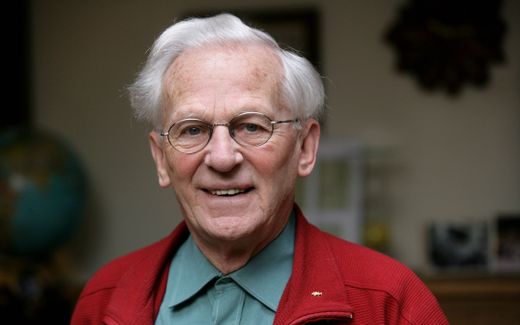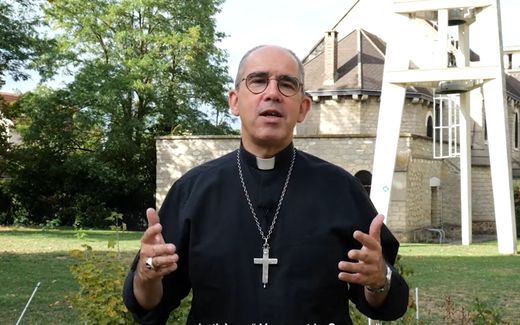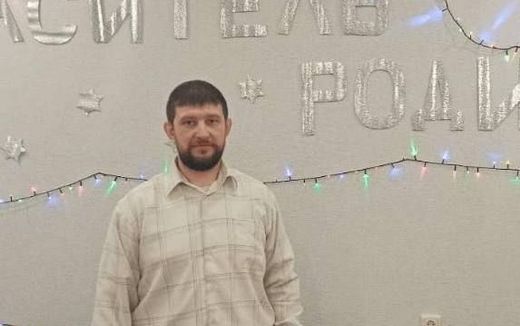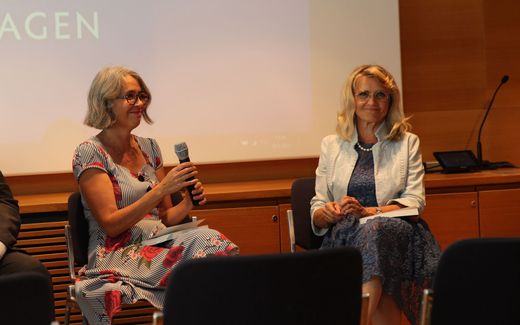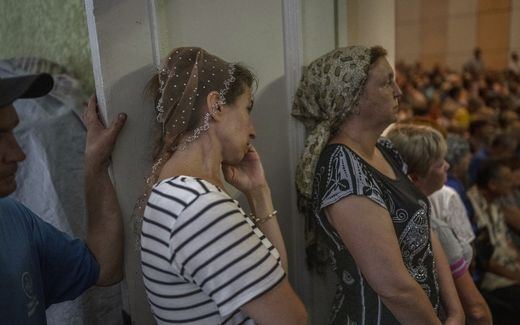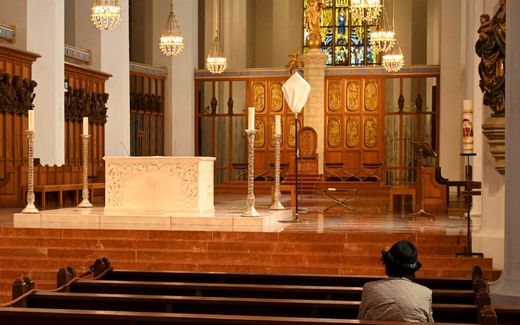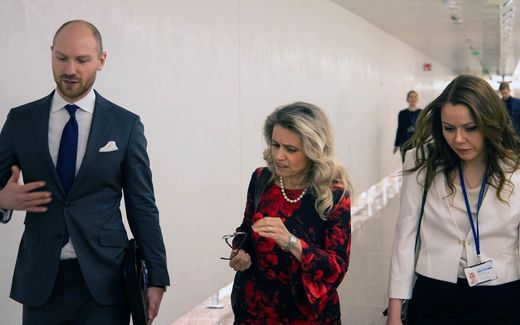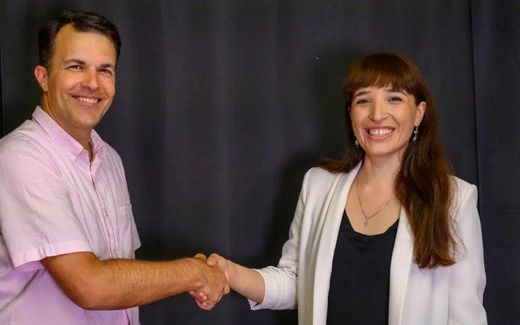European Evangelical Alliance would welcome more young people of colour
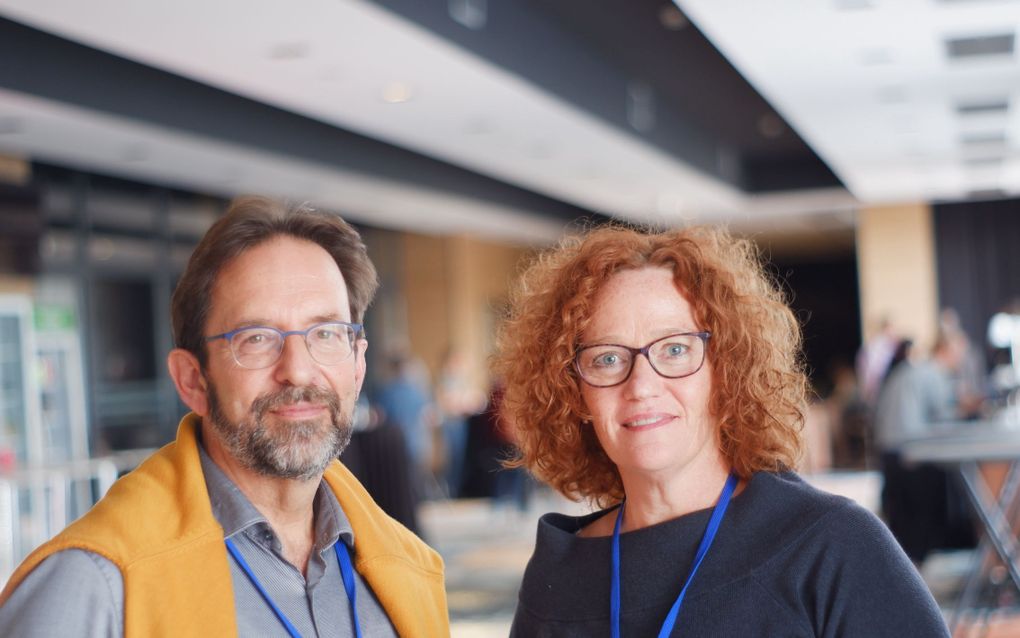
Wessels (left) and Duarte (right) at the Sarajevo conference. Photo CNE.news, Evert van Vlastuin
Christian Life
In their vision and mission, they do not foresee a major shift for the European Evangelical Alliance (EEA). But Connie Duarte and Jan Wessels would be happy to attract new groups.
“We want to make sure that we aren’t missing any potential groups”, Duarte says. “It’s a bit old and white now.”
A significant change is that they will lead the EEA together: Connie Main Duarte (52), a Canadian living in Portugal for 24 years and co-pastoring in a Baptist church there. Jan Wessels (61), Christian Reformed pastor in the Netherlands, co-international director of Faith2Share and a former missionary in Botswana for 18 years. Together, they will follow in the footsteps of Thomas Bucher.
“We remain the alliance that wants to bring together people who follow Jesus”, Wessels says. “That does not change. But in the past, that happened quite institutionalised. In the future, it will be more of a movement.”
Duarte nods. But something has to change, she says in Sarajevo, in the margin of the conference Hope for Europe, where they received the leadership. “Look around at this meeting. Where are the young people in their twenties? Where are the migrant churches? And why are there not more disabled people than the handful? Perhaps, we haven’t made things easily accessible to them. These things have to change. We would like to see the current face of Europe represented in our gatherings. It’s a bit old and white here now.”
Wessels agrees. “The migrants are part of the future of Europe. They are already part of the church in Europe but not in the Evangelical Alliance yet. And apart from that, we also have to make disciples of Jesus. Discipleship: that is the main theme for the 21st century.”
Post-secular
Both have a mission background. They know that the church can be very vulnerable as well. Wessels: “Europe is living in a post-secular era now. In such a situation, we have to help the churches.” Duarte: “In some countries, the Evangelical Alliance is very weak. In one country, for instance, the EA has no more than two staff members. More national alliances work in difficult environments. We must look at what they need, not what we think they need.”
It is the first time a woman has entered the EEA leadership role. It is the “right time”, says Wessels. “In the last ten years, female participation in leadership has grown in the EEA. And rightly so; women have the same gifts.”
The assignment is always for five years. Wessels is planning to step down after that. Duarte thinks about a second term. The advantage is to get another leader along. If that will work, that guarantees continuity. Duarte: “But this is the plan. Of course, we cannot control everything.”
60 per cent
They will both be Secretary General for 60 per cent of their time. Duarte will remain pastor of a Baptist church in Portugal. And Wessels will continue to work part-time for Faith2Share.
Both have long experience in co-leadership and know how to deal with conflict. They smile; this is not a minor issue. Duarte: “You have to go through it. You cannot walk away from the job, so you must reach a consensus. And if not, the board or others must step in to help.”
Wessels: “We have been on the EEA board together for five years. Against that background, I have full confidence that we understand each other. We know that we have a heart for the EEA and for God’s Word. We will always ask: What would Jesus do?”
They are “blessed”, says Wessels, with many praying people around them. “But still, it can go wrong. Also, Barnabas and Paul went their own ways.”
Duarte: “But they came back to each other again. I am happy; we both have strong spouses who will also help us.”
Happy to see so many networks in EEA
Thomas Bucher’s ideal was always to have a European Evangelical Alliance (EEA) full of networks. Now, as he leaves the stage, he is happy about what has grown.
The conference “Hope for Europe” in Sarajevo is like a beehive. Visitors make their way to a session of the Peace & Reconciliation Network, the Prayer Network or the European Educators’ Christian Association (EurECA).
In the margin of the conference, Thomas Bucher can enjoy that this all has developed. “When I started on the board of the Evangelical Alliance of Switzerland in 1998, there was little vision of networking on the level of European Christians and the World Evangelical Alliance. I thought that was sad. On a national level, there are always good practices that can be helpful to others.”
Networks were part of his mission, when he became chairman of the Swiss EA and joined the board of the EEA. When he became the General Secretary of the EEA in late 2012, Bucher could work further on this dream. Now, as he leaves the chair to others, he looks back with gratitude.
“Take the European Freedom Network. It has over 200 partners and has started working globally through the World Evangelical Alliance. The European Disability Network could have more impact. Almost 15 per cent of people have a certain disability. All churches have to deal with that.”
He said it on the platform of the conference as well: “We are on a goldmine. All over Europe, people know how to do things. The only thing is to bring this together.”
Most networks work independently from Bucher’s headquarters. “We support them, for instance, with a theological paper on “Disability in the Bible” that can be found online. We meet representatives of all networks every three months in a Zoom meeting.”
The whole Evangelical Alliance is a huge network. It started in 1846 to unite the church and pray together. Bucher: “Only praying together has already a strong impact.”
Radar
Thomas Bucher is a modest man that would not attract attention on a bus or tram. With his rucksack on, he walks through the corridors of the conference venue. Also, in his work, he does not speak with “a loud voice”, he says. Nevertheless, he is sure that “the house is in order for my successors. I brought more structure and process in the office. One of the national chairmen said to me that the EEA was continually on the radar now, instead of just at the time of the General Assembly before.”
Today, the EEA is active on the political level as well. During the first weeks of the war in Ukraine, Bucher sent many letters to make travelling ing possible for disabled Ukrainians and their caregivers. The organisation is lobbying at the political level as well. Bucher: “Topics such as conversion therapy or the new secularist legislation in France, we speak about that with governments. They touch on one of our core issues: religious liberty.”
Speaking about politics, Bucher is not without concerns. “I am afraid freedom of conscience and speech is under threat in Europe. Originally, tolerance meant bearing something that you did not agree with. But now, it is the right not to hear. That is a challenge.”
He is “proud” of some papers the EEA made to help screen converts among asylum seekers. “Some of them who told they became Christians got ridiculous questions that even I would not be able to answer. We have tried to contribute to better rulings. Confidentially, we know that various governments use our material.”
Refugee crisis
The main challenge for Bucher was the refugee crisis in 2015. “We were overwhelmed. We tried to find our role. We cannot do much as an organisation, but we can connect local churches. And that’s what we did. One of the things we did ourselves was making a website with an FAQ about refugees.”
Evangelicals are still at the forefront of helping refugees. “It happened that Syrian migrants in Sweden told their helpers: On Lesbos, we were supported by the same people as you, and underway, we have met them also. It has happened that this stimulated their interest in the Gospel.”
Regarding the migration crisis, it was difficult that not all Christians were as open as Bucher wanted. “Some of them have taken hard positions. That is sad. In the Old Testament, it was very critical how people handled the poor, widows, orphans, and foreigners. I realise that I say this as a Swiss. Before and during WW II, my people said to the Jews: The boat is full. But that is not good.”
He thinks for a few seconds after the question of whether he has some regrets about his ten years at the EEA. “I have made no major blunders, no. Of course, certain things I could have done differently.”
He will go on as a pensioner. He is busy enough as chairman of a local Reformed church in Zürich. “We are preparing a new building for the Stefanskirche. Part of that will be an Evangelical study house with apartments for students. And for the rest, I am sure God will bring something for me after a time of rest. Everybody who has asked or offered me something, I have said to wait until January.”
Related Articles


